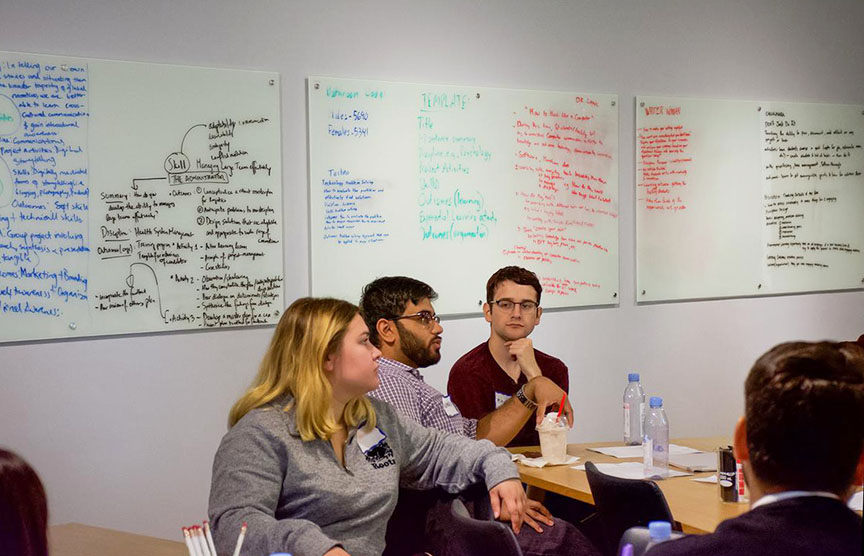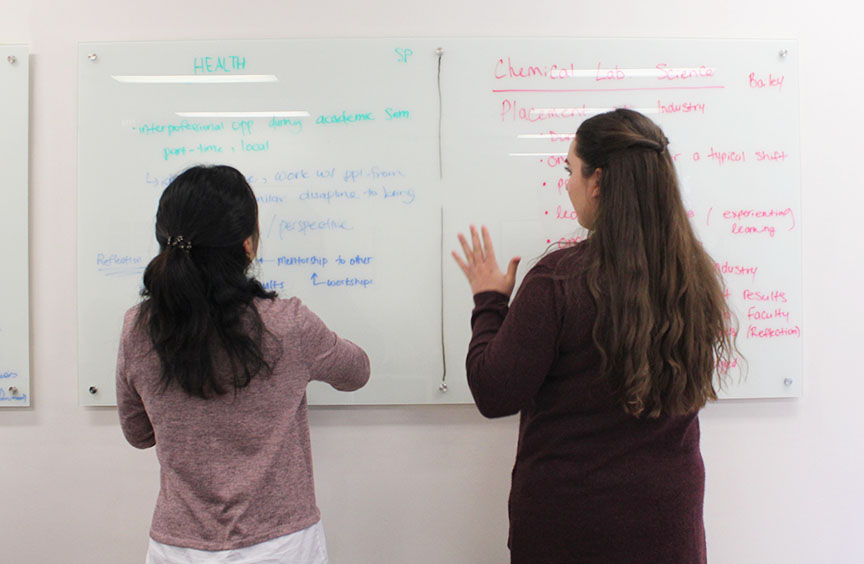
Warning: Undefined variable $post in /var/www/html/rc-ecampus.ecampusontario.ca/wp-content/themes/ecampusontario/functions.php on line 183
Warning: Attempt to read property "ID" on null in /var/www/html/rc-ecampus.ecampusontario.ca/wp-content/themes/ecampusontario/functions.php on line 183
3 min. Read
eCampusOntario leads the way in student-driven, collaborative experiential learning design
By Chris Fernlund
Lead, Student Supports, eCampusOntario
and Julie Huh
Design Intern
In 2019, the eCampusOntario Student-Experience Design (SXD) Lab embarked on a journey to design experiential learning (EL) opportunities for students, by students.
Fifty students from colleges and universities across Ontario were recruited to build a collection of openly available EL blueprints. Throughout the design process, eCampusOntario engaged with students, faculty, administrators, instructional designers and industry professionals.

As a government-funded consortium of publicly funded institutions, eCampusOntario began the project by brainstorming ways to proactively support the province’s mission of preparing learners for the workforce. As well, the organization wanted to think strategically by looking at how to help institutions meet their EL metrics within strategic mandate agreements (SMAs). As the thinking evolved, the SXD Lab landed on this design challenge:
“How might we help institutions scale experiential learning with technology?”
Obviously this is a broad question, so the team narrowed their scope and focused on one plausible solution to the problem. They took inspiration from the Riipen platform and the idea of templates to guide decision making, setting out to build a collection of learner-driven, co-designed experiential templates that could be used in courses across all 45 colleges and universities in Ontario. By having access to a repository of EL experiences, educators and students have a starting point to adopt or adapt ideas for incorporating EL into a curriculum.
As part of the project, Students were trained on design processes, providing them a meta-experiential learning opportunity. eCampusOntario then led an extensive user research process with 126 individuals, including students, faculty and industry leaders who have experience onboarding EL students. To learn more about this process, visit the user research synthesis here. Upon synthesizing the collected user research data, the team developed a set of principles, prioritizing templates that are authentic in nature, relevant to real academic programs, experiential in form, and skill-based by design, i.e., tied to key employability skills.
A common element in this data was the idea of authenticity. Students want to garner experience working on real-world projects, as opposed to disposable assignments common within academia (see the “An Era of Disposable Assignments?” blog post). Additionally, students want to be able to point to skills picked up along the way (which is why the Lab badged each student with a Design Elements Badge. Essentially, students want purposeful learning experiences that result in personal meaning.

Over a period of one month, each student, with support from key stakeholders, designed program-specific templates that are purposefully industry facing, tied to key employability skills and relevant to academic teaching and practice, resulting in tangible outputs for organizations.
The SXD Lab EL story doesn’t end there. The templates are currently being evaluated to ensure the experiences are feasible, desirable and viable for educators and students alike. The next step: Are you ready to help?
If you are an educator, eCampusOntario encourages you to browse the collection and adopt or adapt the open templates into a course and provide user testing data. It’s key that the community understands what worked, what didn’t and what could have been better.
You can view the collection here. More templates will be added later this month.



